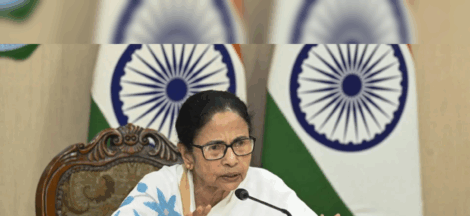By Satyaki Chakraborty
For European Union, its political woes are showing no signs of abating as the June 1 Presidential runoff results in Poland showed that the populist right opposition candidate Karol Nawrocki backed by the Law and Justice Party(PIS) won defeating his pro-European rival Rafal Trzaskowski in a neck to neck contest. Nawrocki got 50.89 per cent of the votes as against his rival’s 49.11 per cent.
Nawrocki is anti-EU and pro-Trump. His victory is a major blow for the coalition government led by Donald Tusk and is expected to intensify the political crisis in Poland with the newly elected President and the serving Prime Minister Donald Tusk having opposing views on aid to Ukraine, security policy in Europe and stand on relationship with EU..
The 42-year-old Nawrocki has been endorsed by the right-wing Law and Justice (PiS) party, which governed Poland from 2015 to 2023.Nawrocki campaigned under the slogan “Poland First, Poles First” on the lines of Donald Trump’s MAGA slogan in America. He has been opposing the PM Donald Tusk’s policies vehemently. While not fully denouncing Ukraine in its present war with Russia, the President elect in the course of his campaign strongly opposed Tusk’s aid to the Ukraine refugees.
He opposes Ukraine’s bid to join NATO and as an admirer of Donald Trump , he wants Poland should focus on shaping and leading Europe’s relations with the US president. The role of the Polish President is mainly ceremonial but Nawrocki wants to be a pro-active President. The President has his say in foreign and defence policies and can veto a legislation. Prime Minister Tusk has proposed some social issues as also a few measures in the area of defence policy. The question is now whether Tusk government will be able to implement those smoothly.
The next Parliamentary election in Poland is due in 2027. Till then the PM Tusk and his ruling coalition will have to cohabit with a belligerent President who does not hide his programme of seeing his party led coalition to be in power after 2027 parliamentary elections in the country. PM Tusk knows that. That is why, he may slow down some of his reforms measures if those lead to controversy or unrest among the Polish citizens in general.
For EU, this is the second setback in national elections in the last fifteen days. On May 18, in the parliamentary elections in Portugal, the centre right Democratic Alliance and the far right Chetga occupied the first two positions meaning the DA will rule Portugal while Chetga will be the main opposition pushing the long time ruling the Socialist Party to the third position. The Communist Party of Portugal (PCP), an earlier ally of the SP got only 3 seats in the 230 member Parliament. However in the Romanian presidential elections, the far right candidate could not win. The pro-EU candidate won-that was the only solace for the EU after May 18 elections.
As of now in Europe, the far right surge is continuing. In Britain, the far right Reform UK party of pro-Trump Nicole Farage is surging ahead eroding the electoral base of both the Conservatives and the Labour Party. Farage is projecting himself as the next Prime Minister in UK and that is being discussed. In France, the far right National Rally led by Marie Le Pen is out of power but it is controlling the present ruling French government as the Prime Minister is depending on many issues for support from this far right group. President Emanuel Macron is quite comfortable with this cohabitation with far right in running the government.
In Germany, though Frederick Merz has taken over as the chancellor from May 7 as the head of CDU-CSU and forming a three way coalition with the Social Democratic Party and the Greens, the far right AFD is the second biggest party in Parliament. President Merz has categorically said that AFD will never be allowed to be a part of any coalition government, AFD is preparing to spread its base by acting as the main opposition from the Right. On the other hand, the Left Party Di Linke with 64 seats in the new Parliament is acting as the main opposition from the Left as both Social Democratic Party and Greens are the ruling partners. (IPA Service)



